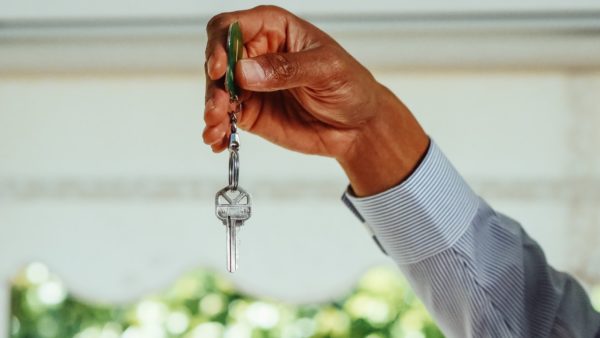The American dream isn’t just about owning a home with a white picket fence. It is about seeing homeownership as a means to accumulate and build wealth that can be passed on for generations to come. Nearly 50 percent of Black Americans in a recent survey view homeownership the same way.
Some 47 percent of Black respondents in a just-released U.S. Bank study see real estate as a valuable tangible asset to pass down to family members. But Black homeowners have to overcome decades of systemic racism to purchase homes.

Black Homeownership Key to Closing Black-White Wealth Gap
For 60 percent of American households, a home makes up 64 percent of the household’s assets, found National Bureau of International Research data. Even though Black homeownership is at 49 percent, according to Pew Research Center, there is still a large Black-white wealth gap. Federal Reserve data finds that the average white family has $183,000 in wealth while typical Black families only had $23,000 accumulated in wealth.
“Today’s African American adults and children are living with the legacy of discrimination, inequality, and exclusion, from slavery to redlining and other discriminatory practices,” said Alexandra Killewald, a professor of sociology at Harvard University, in The Harvard Gazette. “And in turn, white Americans are benefiting from legacies of advantage.”
Homeownership is crucial to obtaining wealth, but not enough is being done to increase African-Americans purchasing homes.
“Homeownership is so critically important. [It is] the No. 1 way for families and individuals to build wealth in the United States … and I don’t see anything on the horizon changing that paradigm, so we have to make sure that communities of color have access to [these] opportunities,” said Lisa Rice, president and CEO of the National Fair Housing Alliance, told CNBC.
Overcoming Subprime Loans and Discrimination
African-Americans have had to overcome discriminatory banking policies to own homes. Between 2004-2007, Black homeowners were 105 percent were more likely than whites to have a high-cost mortgage, according to the National Bureau of Economic Research. Predatory loans in the subprime housing bubble before the Great Recession in 2008 hurt Black homeowners, Rice noted.
“We’ve never had a time in American history when mainstream lenders were the primary source of credit for people of color. It has always been subprime lenders who are the providers of credit,” said Rice.
Rice added, “So instead of your payment being fixed over a long period of time, what happened is that after two to three years, your payment would increase dramatically. And, I’m not talking about increasing by 15 or 20 percent. We saw payments increasing by 50 percent.”
Legislation May Help Increase Black Homeownership
Black homeownership can possibly increase in the future with the First-Generation Down Payment Assistance program as part of the Build Back Better Bill that is currently making its way through Congress. The First-Generation Down Payment Assistance Program would give eligible first-time homebuyers $20,000 in financial assistance to put a down payment on a home purchase.
Lack of Estate Planning in Black America
Unfortunately, estate planning has not been adopted as widely as it should be by Black Americans. Only about a quarter of Black Americans have made a will, according to a Caring.com 2021 survey. That percentage has increased since 2020, from 25.9 percent to 27.5 percent.
Add to this the pressure on Black homeowners to sell when their communities experience gentrification, there are a lack of assets to pass down to the next generations.
“Inheritance is almost nothing for Black families, and it plays into white wealth and the wealth gap. Part of that is transferring homes. Every generation is starting from scratch again,” financial journalist Rodney A. Brooks told U.S. News and World Report. “Even if they get to that home, if they don’t leave it to their children, then their children will again start out with no assets. Homeownership is an important part of cutting this wealth gap because it would help you pass on generational wealth.”
How Homeowners Can Pass On Homes to Heirs
For current Black homeowners, there are ways they can pass on their homes to their family members. Homeowners can create a revocable living trust, which lets homeowners list their children as successors to maintain and take control of a home after a homeowner dies.
“Talk to your family about it first and discuss whether anyone wants to live in it and has the wherewithal to keep up with the property taxes, insurance and maintenance costs. If no one wants the property, the trust can sell it after you pass away and distribute the proceeds,” Dan Sullivan, a wealth strategies consultant with RBC Wealth Management-U.S., told RBC Wealth Management’s blog.
There is also a deed transfer that homeowners can do in 25 states and Washington, D.C., according to NOLO, which publishes do-it-yourself legal documents. A transfer-on-death deed lets homeowners transfer the deed to an heir upon their deaths. Homeowners should discuss all the options to let family members inherit homes with a trusted financial advisor.




